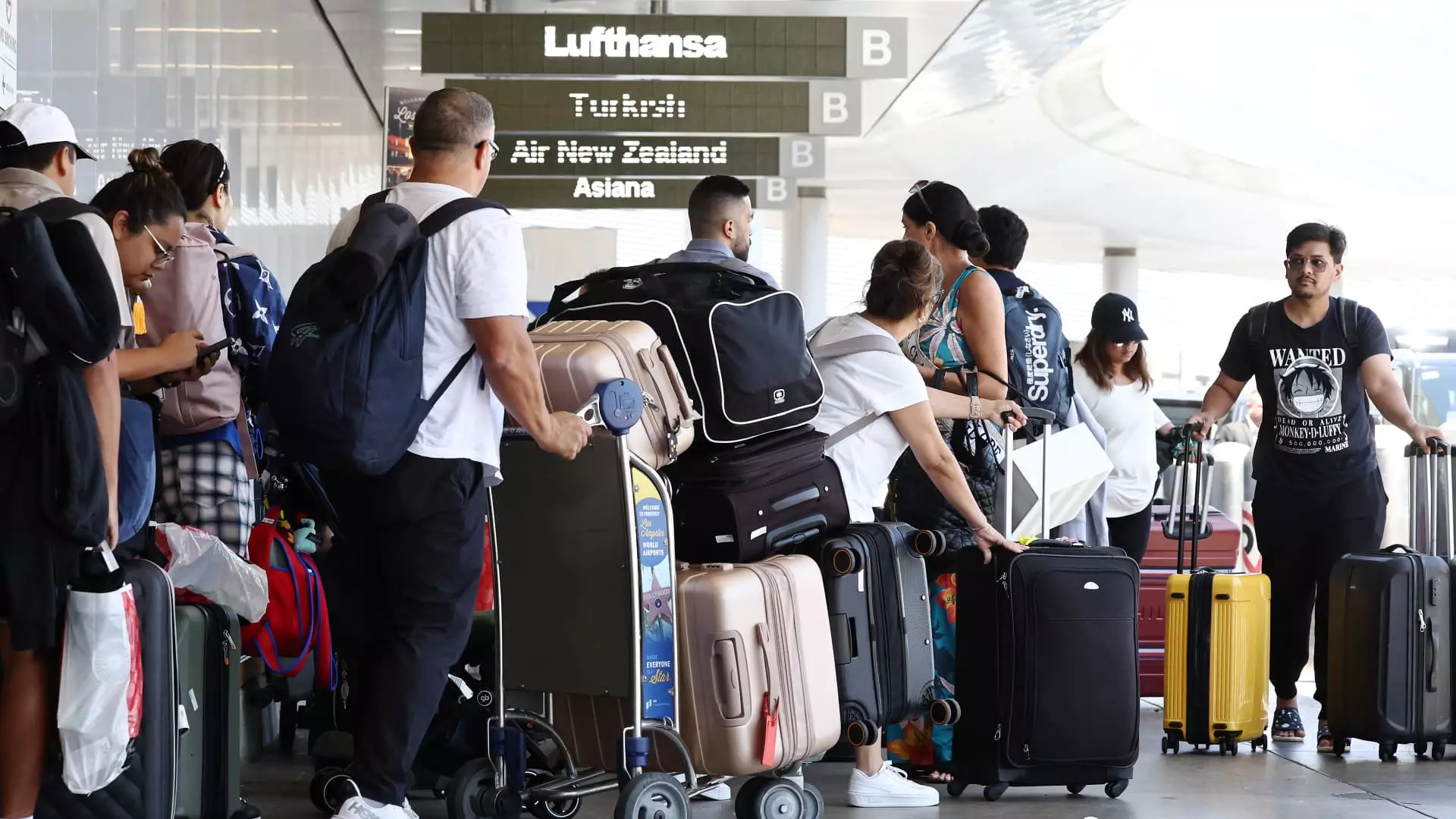Summer air travel in the United States is expected to reach unparalleled levels this year, with record-setting passenger numbers projected by the Transportation Security Administration (TSA). The recent screening of close to 3 million individuals on a single day in June exceeded a previous record set just weeks earlier, highlighting the massive surge in travel. The TSA anticipates screening over 32 million travelers between late June and early July, representing a substantial 5.4% increase from the previous year. These heightened travel figures come amidst numerous challenges faced by the airline industry, from supply chain delays to stringent regulations and safety crises such as the Boeing incidents.
Operational Challenges and Preparation Efforts
Despite the optimism expressed by airline executives regarding their operational performance, airports across the country have experienced significant delays and disruptions during the initial summer rush. Over 6,000 flights were reportedly delayed on the East Coast alone, revealing the strain on airport infrastructure and services. The airlines are striving to enhance their reliability and minimize cancellations, but external factors like weather conditions and air traffic control issues continue to pose obstacles. The insufficient number of air traffic controllers, as highlighted by the FAA, remains a critical concern, especially in high-density regions like New York City and Florida.
The ongoing heatwave and adverse weather patterns across the U.S. have added another layer of complexity to summer travel. Extreme temperatures can lead to technical failures, forcing airlines to adjust their operations by reducing baggage or limiting passenger loads. This can result in increased cancellations and flight delays, affecting travelers’ plans and causing inconvenience. The National Oceanic and Atmospheric Administration has warned of disruptive weather conditions during the holiday week, with storms anticipated in various regions, further complicating travel logistics.
Despite the challenges and uncertainties associated with summer air travel, experts suggest several strategies to mitigate disruptions and ensure a smoother journey. Travelers are advised to consider early morning or late-night flights to avoid peak travel times and potential delays. Additionally, signing up for airline apps offering benefits like expedited security screening and real-time flight tracking can help passengers navigate through crowded airports more efficiently. Staying informed about route changes and potential issues at other airports can also contribute to a more seamless travel experience.
Major airlines like United and American are projecting significant increases in summer travel volume and have taken proactive measures to address operational challenges. However, the shortage of air traffic controllers and ongoing production issues with new aircraft continue to pose operational risks for the industry. Rising fuel costs, labor expenses, and maintenance expenditures have contributed to a competitive pricing environment, benefiting consumers with lower airfares. While airlines are adapting to the changing landscape, uncertainties around future price hikes and capacity constraints remain prevalent.
As the summer travel season unfolds with record numbers and potential disruptions, passengers must prepare for a range of scenarios to make their journeys more manageable. By staying informed, utilizing technology tools, and planning ahead, travelers can enhance their travel experiences and minimize the impact of unforeseen challenges. While the industry continues to address operational issues and improve coordination, the collective effort of airlines, airports, and passengers is essential in overcoming the complexities of summer air travel.


Leave a Reply